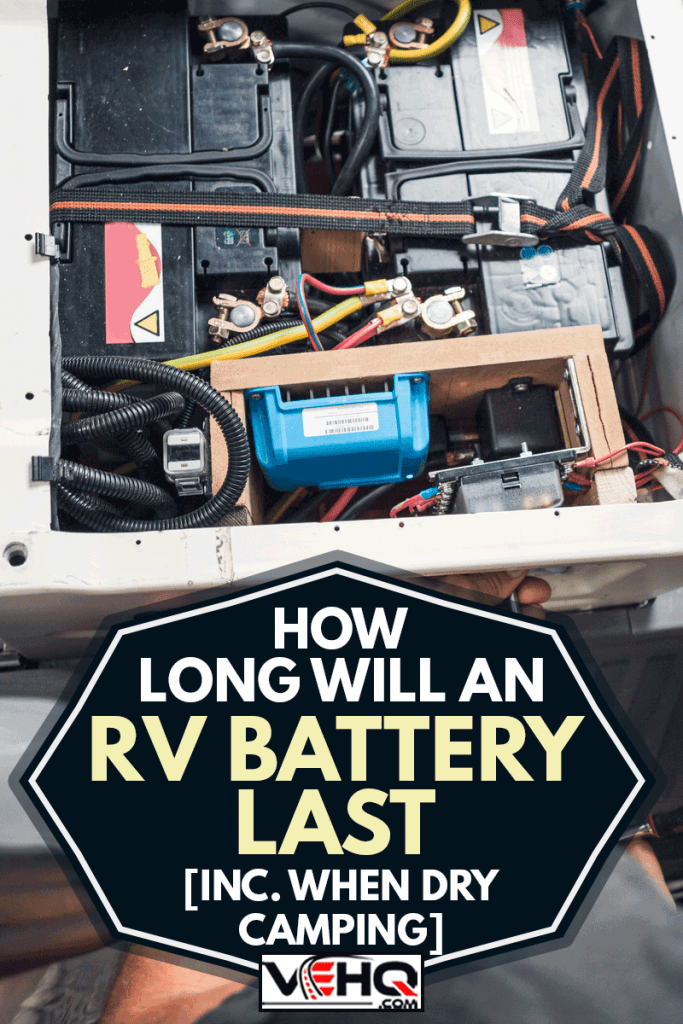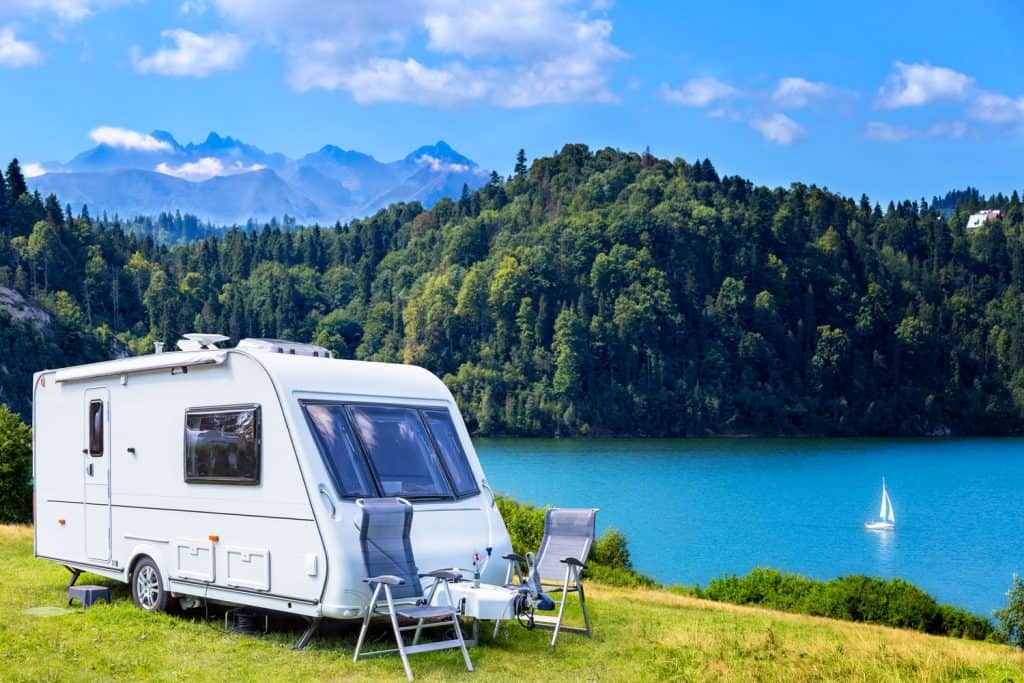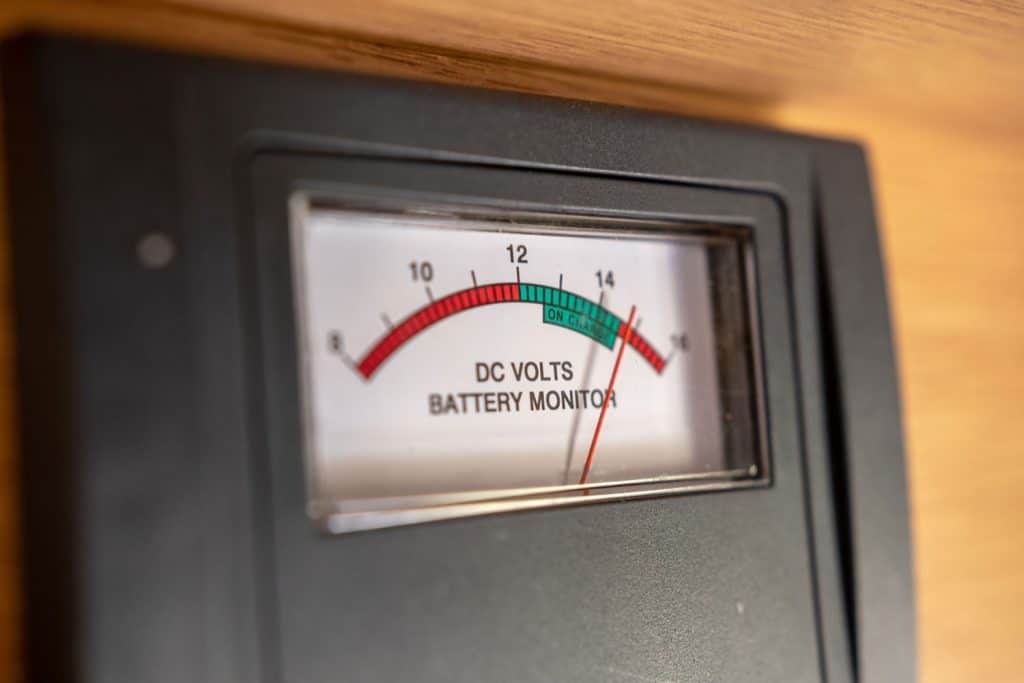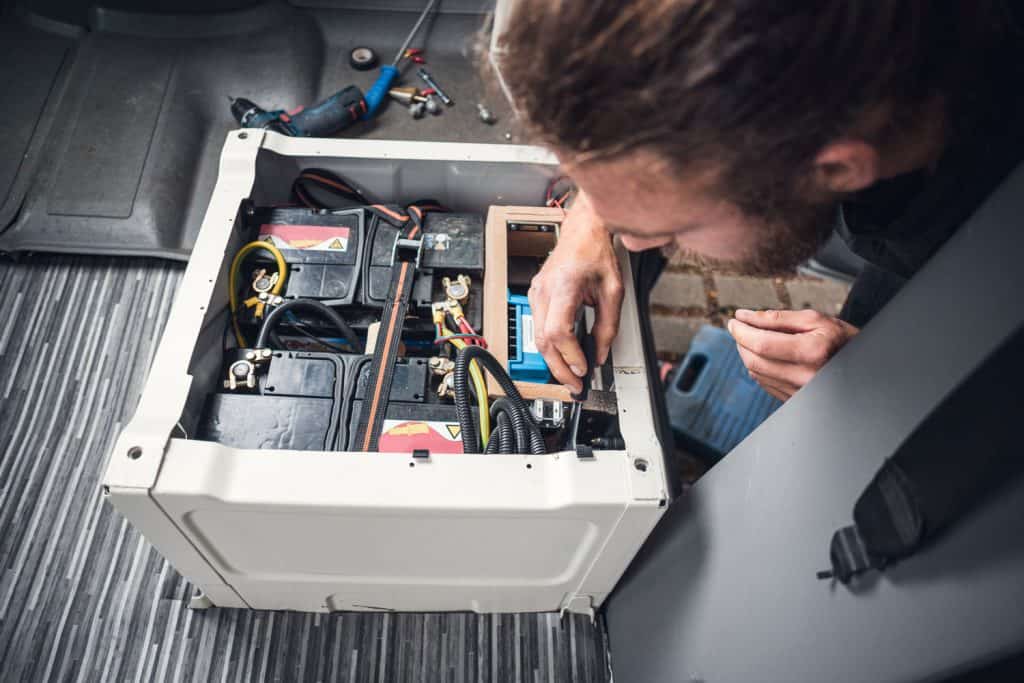Batteries are used in our daily lives, from cell phones to laptops to our cars. If you own an RV or camper, you know a good battery is needed to help make your trip more comfortable. But how long will your battery last? We've researched battery life for typical RV batteries to find the answer for you.
A typical 12 volt RV battery can last up to 48 hours, even while dry camping. Although, this may change depending on your power usage and how well maintained your battery is.
You may be surprised at how long your RV battery can last. Read below to learn more about your RV battery, the amp hour rating, the battery cycles, and common causes of failures. We will also discuss what dry camping is and how you extend your battery life while dry camping.

What is dry camping?

How can I extend my battery life when dry camping?
There are few things you can do to help extend your battery's life while dry camping:
- Limit power consumption. Make sure to turn off any unused lights and appliances.
- Using distilled water in your battery. Tap water usually contains minerals and this can cause calcium buildup in the battery, shortening its life.
- Using energy-efficient appliances. Swapping out your RV's appliances with energy-efficient ones will help keep your battery going longer. Although this may be expensive, if you plan on doing a lot of dry camping, it may be beneficial in the long run.
- Install a solar power system on your RV. Solar-powered systems are becoming more common and if your planning on dry camping, boondocking, or becoming a full-time RVer, having a solar system installed will save you a lot of energy.
You can check out RV solar panel kits on Amazon.
What do I need for dry camping?
There are five main things you need to create a comfortable dry camping experience:
Transportation
If you have a travel trailer or any other type of RV or camper that needs to be hauled, having a truck with the strength to tow a fully weighted RV is essential. Because you'll be adding more weight than normal during dry camping, you'll need to keep this extra weight in mind when choosing the right truck to haul your rig.
Electricity
In order to keep your fridge running and the lights on, you'll need to have a fully charged battery. Since there aren't any hookups while dry camping, extra batteries or a solar-powered system is recommended.
Water
Before leaving for a dry camping trip, you'll need to fill your clean water tank. This will provide fresh water for drinking, showering, dishes, and the toilet.
Waste disposal
Having a black water tank for dry camping is a big essential. There won't be any bathroom facilities while dry camping, so your waste needs a black water tank to collect in.
Meals
Most of the time, dry camping occurs in remote areas. Make sure to pack enough dry food to create meals throughout your trip once fresh ingredients have been used.
![A RV parked near a lake with a panoramic view of the crystal clear waters of a lake and tall mountains, 12 Best RVs for Full-Time Family Living [By RV type]](https://vehq.com/wp-content/uploads/2020/10/A-RV-parked-near-a-lake-with-a-panoramic-view-of-the-crystal-clear-waters-of-a-lake-and-tall-mountains-1024x683.jpg)
What is an amp hour rating?
An amp hour rating is the amount of current a battery can supply for an hour-long duration. This is usually listed on deep cycle batteries. If you cannot find an amp hour on your battery, then your battery is most likely a starting battery and is not meant to provide continuous long-term use.

What is a battery cycle?
A battery cycle is a complete charge and discharge of a rechargeable battery. The cycle starts with a fully charged battery and continues to the time it needs to be recharged again. The number of charge cycles a battery can withstand is usually listed on the battery. This may vary depending on how well your battery is maintained. Poorly maintained batteries will have a lower life expectancy.
How to size a deep cycle battery?
Sizing a deep cycle battery is essential in knowing how long your battery will last. Below we'll walk you through the steps to size your deep cycle battery.
Step 1: Identify your daily use in watt-hours (Wh).
Step 2: Figure out days of autonomy (backup days) and multiply your watt-hours (Wh) per day by this factor.
Step 3: Identify your depth of discharge (DoD) and convert this figure to a decimal value. Divide the result of Step 2 by this value.
Step 4: Derate the battery bank for the ambient temperature effect. Select the multiplier corresponding to the lowest average temperature your batteries will be exposed to. Multiply the result from Step 3 by this factor. The result is the minimum Wh capacity of the battery bank.
| Temperature (F) | Factor |
| 80+ | 1.00 |
| 70 | 1.04 |
| 60 | 1.11 |
| 50 | 1.19 |
| 40 | 1.30 |
| 30 | 1.40 |
| 20 | 1.59 |
Step 5: Divide the result from Step 4 by your system voltage. The result is the minimum Amp-hour (Ah) capacity of your battery bank.
What are the most common causes of RV battery failure?
There are many reasons your battery may be drained of power, but there are two main culprits to battery failure:
Draining your battery too fast
As a child, your parents probably yelled at you for leaving all the lights on. Well, now is the time to listen! Leaving on lights or unused appliances is the most common cause of battery life loss. When relying on your RV's battery, being conservative with your energy usage is essential.
Overcharging & Undercharging
Undercharging is not allowing your battery to charge fully between cycles. If this occurs often, your battery may become damaged and the sulfate inside may crystalize. Overcharging your battery may cause damage as well, causing battery casings to crack. Overcharging too much can actually be quite dangerous and in extreme cases, your battery can explode.
If your RV battery isn't working, don't worry. We have an article to help you, "RV Battery Not Working: What to Do?"
Summary

Navigating the world of batteries can get anyone charged up. But with proper maintenance and knowledge, keeping your battery charged and your RV running can be a breeze. Dry camping has its rewards, with careful planning to stay comfortable without any hookups. Sizing your battery and knowing your battery's amp hours and battery cycle will help you know how long you have before running out of power. If ever in doubt, be sure to consult a professional before venturing out on your own.
Before you go, make sure to check out these other great articles:
What’s the Size of a Motorhome Gas Tank? (Inc. Cost To Fill It Up)
How Much Does RV Camping Cost? [A detailed Analysis with Examples]


Thank you for writing this, your information is very helpful for RV beginners like me.
Will keep reading your website.
How Long Do RV Batteries Last??? Normally, A 12-volt travel trailer battery can last about two to three days, on average. This battery life reflects normal electric appliance usage, including lighting, water pump, phone charging, running the propane refrigerator, and others. Using more electric appliances and gadgets will drain your RV battery faster. In general, a two to three-day RV battery life is sufficient for most RV owners. There are some Tips to Extend RV Batteries’ Life: Use a different battery for running the various equipment to avoid draining your RV battery. Check the battery’s water level regularly, temperature extremes can shorten battery life. Always use distilled water to refill the battery fluid. Do not use tap water because it can produce calcium sulfation.
Not allowing your RV battery to discharge below 50% can help extend its lifespan. So do check for parasitic loads, observe the correct battery charging process, and manage the battery’s fluid levels. Moreover, you can always choose to replace your 12-volt RV batteries with 6-volt units.
I observed that my Dometic fridge ran on lead acid batteries for 12 to 25 hours. Meanwhile, a 12V Lithium Iron Phosphate battery can power it for up to 2 hours.
Thank you for writing this. Our camping experience wouldn’t be complete without a running refrigerator to store all of our food. So we need to know how much battery the refrigerator uses and how long it will last in case it goes off.
Thank you for writing this. We need to know how long RV batteries last and extend them to have a perfect trip.